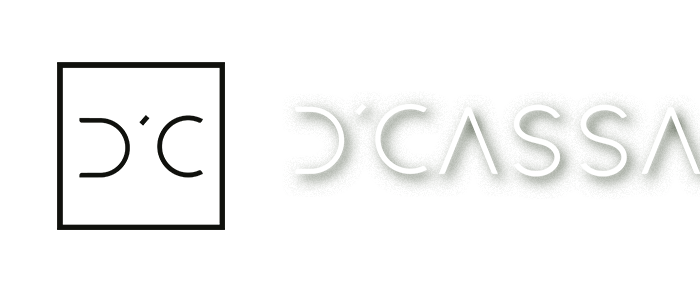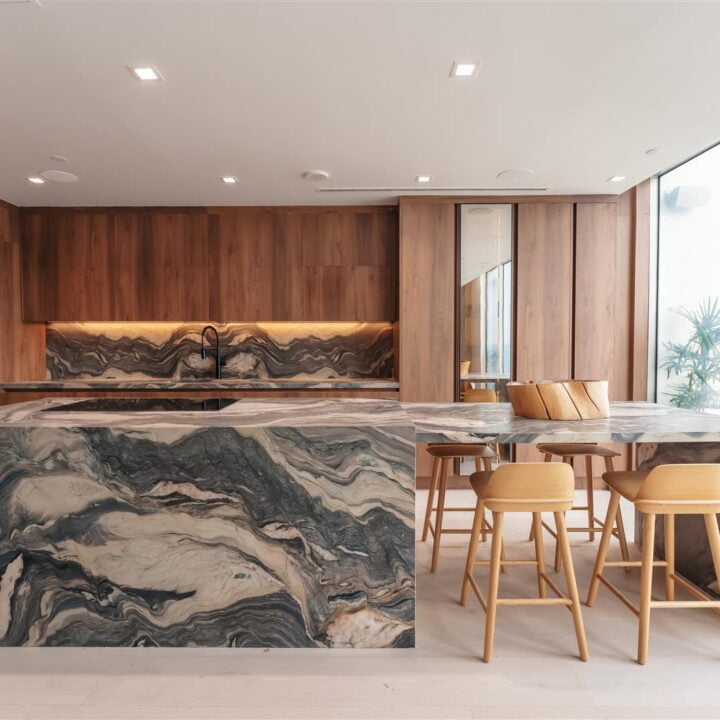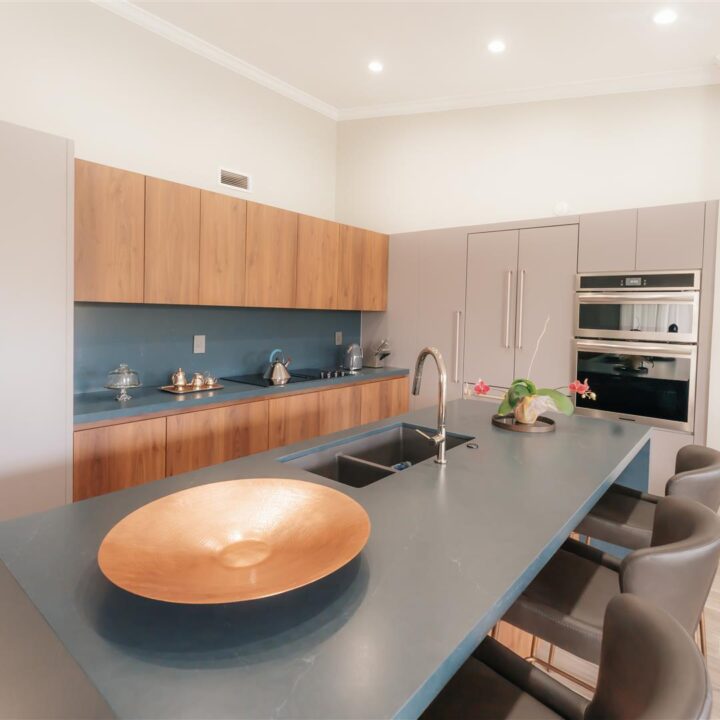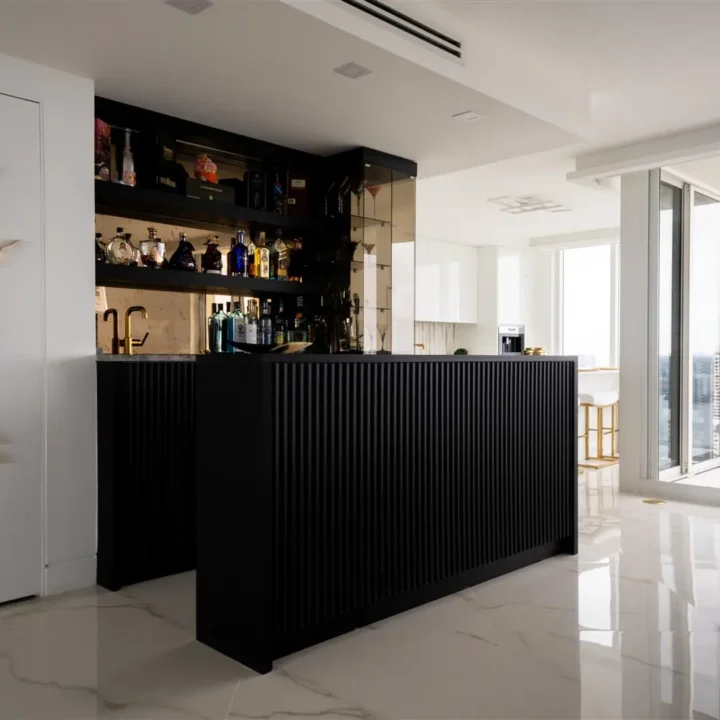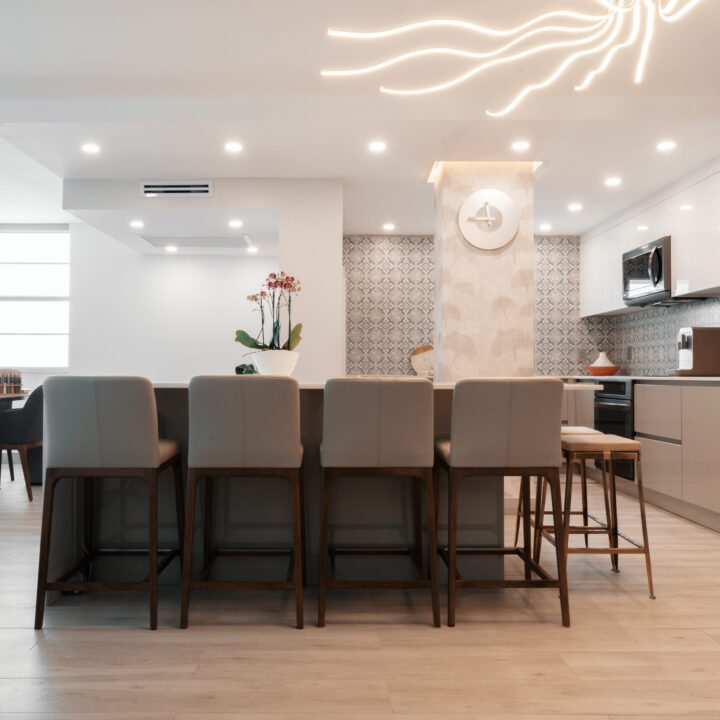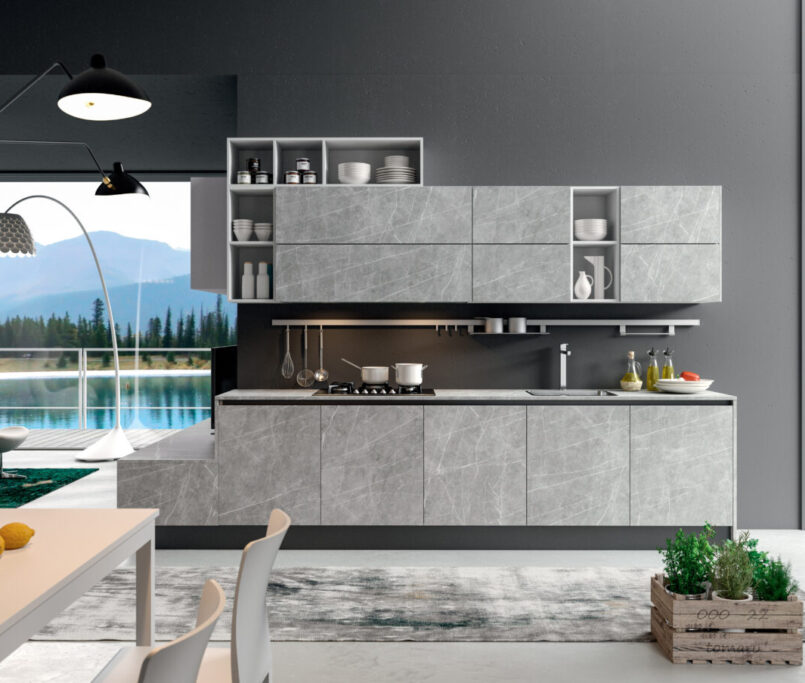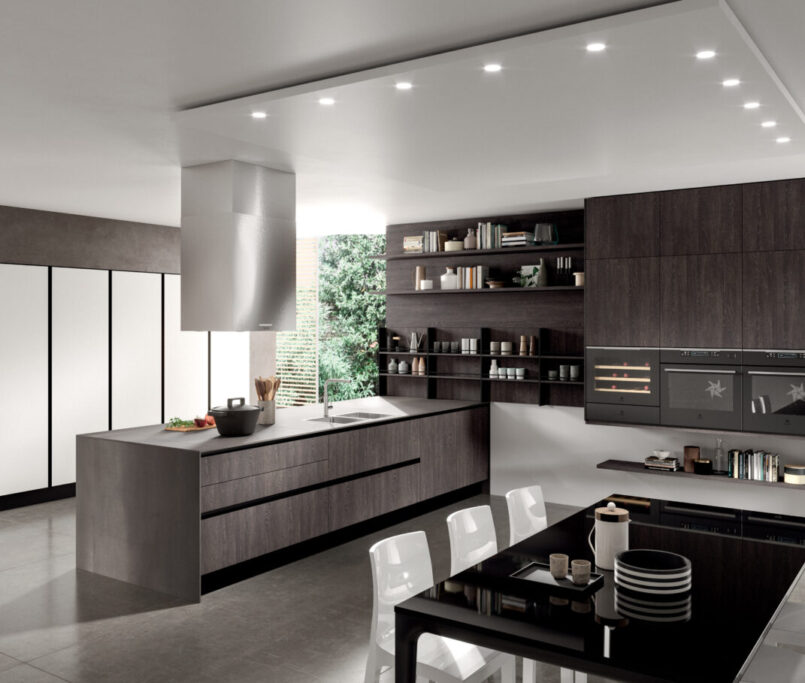When it comes to choosing the perfect countertop for your kitchen, marble and quartz are two of the most popular options. Each material has its own unique qualities, making them appealing for different reasons. This article will explore the differences between marble and quartz, helping you make an informed decision about which one is right for your home.
Key Takeaways
- Marble is a natural stone known for its unique beauty and luxury feel, but it requires more maintenance.
- Quartz is an engineered stone that offers a wide range of colors and patterns, making it versatile for various designs.
- Marble can be more prone to stains and scratches, while quartz is generally more durable and easier to maintain.
- Both materials have similar price ranges, but the cost can vary based on style and quality.
- Consider your lifestyle and kitchen use when choosing between marble and quartz, as this can impact your satisfaction with the countertop.
Understanding Marble and Quartz

What is Marble?
Marble is a natural stone that has been used for thousands of years. It is formed from limestone and is known for its beautiful veining and unique patterns. Marble comes in various colors, including white, pink, and gray. Each piece is one-of-a-kind, making it a popular choice for those looking for elegance in their homes.
What is Quartz?
Quartz countertops are engineered stones made from ground quartz mixed with resin and pigments. Unlike natural stones, quartz is non-porous, which means it doesn’t stain easily. It comes in many colors and patterns, often mimicking the look of natural stones like marble. This makes it a versatile option for various kitchen designs.
Differences Between Marble and Quartz
| Feature | Marble | Quartz |
|---|---|---|
| Material Type | Natural stone | Engineered stone |
| Porosity | Porous | Non-porous |
| Stain Resistance | Prone to staining | Highly resistant |
| Maintenance | Requires sealing | Low maintenance |
| Durability | Softer, can scratch | Harder, more resistant |
- Marble vs. Quartz Comparison: Marble is often chosen for its beauty, while quartz is favored for its durability and low maintenance.
- Marble vs. Quartz Durability: Quartz is generally more durable than marble, making it a better choice for busy kitchens.
- Choosing Between Marble and Quartz: Consider your lifestyle and how much maintenance you are willing to do.
When deciding between marble or quartz for kitchens, think about your cooking habits and how much wear and tear your countertops will face.
In summary, both marble and quartz have their unique benefits. Understanding these materials can help you make an informed choice for your home.
Aesthetic Appeal of Marble and Quartz Countertops
Unique Veining of Marble
Marble is known for its stunning natural veining. Each slab is unique, showcasing a variety of colors and patterns that can enhance any kitchen. This uniqueness makes marble a sought-after choice for those looking for elegant countertop materials. Here are some key points about marble’s appearance:
- Natural beauty: No two pieces are alike.
- Timeless elegance: Marble has been used for centuries in high-end designs.
- Luxurious feel: It adds a touch of sophistication to any space.
Color and Pattern Options in Quartz
Quartz countertops offer a wide range of colors and patterns, making them a versatile choice for any kitchen design. Unlike marble, quartz is engineered, allowing for more consistency in appearance. Here are some advantages of quartz:
- Variety: Available in numerous colors and styles, including those that mimic the look of marble.
- Controlled patterns: Less chance of unexpected color variations.
- Durability: Maintains its beauty over time without the need for sealing.
Matching Countertops with Kitchen Design
When choosing between marble and quartz, consider how each material fits with your overall kitchen design. Here are some tips:
- Consider your style: Match the countertop to your kitchen’s theme, whether modern or traditional.
- Think about maintenance: Quartz is generally easier to maintain than marble, which may require more care.
- Evaluate the impact on resale value: High-end kitchen countertops can enhance your home’s value, making it essential to choose wisely.
In summary, both marble and quartz offer unique aesthetic benefits. While marble provides a classic, luxurious look, quartz offers versatility and durability, making it a strong contender in the Quartz vs. marble aesthetics debate. Choosing the right material can significantly impact the overall feel of your kitchen, ensuring it remains a beautiful and functional space for years to come.
Durability and Maintenance

Stain Resistance
When it comes to stain resistance, quartz countertops are the clear winner. They are non-porous, meaning they don’t absorb liquids, which helps prevent stains. In contrast, marble is porous and can easily stain if spills are not cleaned up quickly. Here’s a quick comparison:
| Material | Stain Resistance |
|---|---|
| Marble | Low |
| Quartz | High |
Heat Resistance
Heat resistance is another important factor. Marble can handle heat better than quartz, but it’s still wise to use trivets or hot pads to protect both surfaces. Here’s how they stack up:
- Marble: Can withstand high temperatures but may etch or stain if hot items are placed directly on it.
- Quartz: Generally heat resistant, but extreme heat can cause damage.
Scratch and Chip Resistance
In terms of scratch and chip resistance, quartz is more durable. Here’s a breakdown:
- Quartz: Highly resistant to scratches and chips due to its engineered nature.
- Marble: More prone to scratches, as it is softer on the Mohs hardness scale.
In summary, while both materials have their strengths, quartz is easier to maintain and more durable overall. Marble, however, offers a unique beauty that some homeowners prefer, especially in high-end designs like the Weston Residence Kitchen or the Homestead FL Custom Onyx Kitchen.
Cost Comparison

Price Range of Marble Countertops
Marble countertops are known for their luxurious appeal but come with a higher price tag. On average, the cost of marble can range from $100 to $200 per square foot. Factors that influence the price include:
- Type of marble: Some varieties are rarer and more expensive.
- Thickness: Thicker slabs generally cost more.
- Installation complexity: Intricate designs may increase labor costs.
Price Range of Quartz Countertops
Quartz countertops are generally more affordable, with prices typically ranging from $75 to $150 per square foot. The cost can vary based on:
- Brand: Different manufacturers may have varying prices.
- Design: Custom patterns or colors can add to the cost.
- Installation: Similar to marble, complex installations can raise the price.
Factors Influencing Cost
When deciding between marble and quartz, consider these factors:
- Budget: Determine how much you are willing to spend.
- Maintenance: Quartz is easier to maintain, potentially saving you money in the long run.
- Resale value: Both materials can add value to your home, but marble is often seen as more luxurious.
Choosing the right countertop material is not just about the initial cost; consider the long-term maintenance and aesthetic appeal as well.
Pros and Cons of Marble and Quartz
Advantages of Marble
- Luxury Appeal: Marble is often seen as a premium material that adds a touch of elegance to any space.
- Unique Patterns: Each slab of marble is unique, showcasing beautiful natural veining that cannot be replicated.
- Timelessness: Marble has a classic look that never goes out of style, making it a long-lasting choice for countertops.
Disadvantages of Marble
- Porous Nature: Marble is porous, which means it can easily stain from spills like wine or tomato sauce.
- Softness: Being a softer stone, it can scratch or chip more easily than other materials, especially in a busy kitchen.
- Maintenance: Marble requires regular sealing to protect it from stains and scratches, which can be a hassle.
Advantages of Quartz
- Durability: Quartz is engineered to be strong and resistant to scratches and chips, making it ideal for high-use areas.
- Low Maintenance: Unlike marble, quartz does not need sealing and is less likely to stain, making it easier to care for.
- Variety of Styles: Quartz comes in a wide range of colors and patterns, allowing for more design flexibility.
Disadvantages of Quartz
- Heat Sensitivity: While quartz is durable, it can be damaged by high heat, so using trivets is recommended.
- Manufactured Look: Some people feel that quartz lacks the natural beauty of real stone, making it look less authentic.
- Visible Seams: Because quartz slabs are often smaller, seams can be more noticeable, especially on larger countertops.
In the debate of Quartz vs. marble pros and cons, it’s essential to weigh the unique characteristics of each material to find the best fit for your kitchen.
| Feature | Marble | Quartz |
|---|---|---|
| Cost | $100 – $200 per sq. ft. | $115 – $200 per sq. ft. |
| Stain Resistance | Low (requires sealing) | High (non-porous) |
| Heat Resistance | High | Moderate |
| Scratch Resistance | Low | High |
When considering natural stone vs. engineered stone, both materials have their strengths and weaknesses, making the choice a personal one based on your lifestyle and design preferences.
Choosing the Right Material for Your Kitchen

When deciding between marble and quartz for your kitchen, consider several important factors. Your choice can greatly affect both functionality and style.
Lifestyle Considerations
- Cooking Habits: If you cook often, quartz might be better due to its stain resistance.
- Entertaining: If you host gatherings, marble can create a stunning visual impact.
- Maintenance: Think about how much time you want to spend on upkeep.
Design Preferences
- Aesthetic Appeal: Marble offers unique veining, while quartz provides a more uniform look.
- Color Options: Quartz comes in a wider variety of colors and patterns.
- Matching Styles: Ensure your countertops complement your cabinetry and flooring.
Resale Value Impact
- Market Trends: Marble can add luxury, but quartz is often seen as more practical.
- Home Style: Consider how the material fits with your home’s overall design.
- Future Buyers: Think about what potential buyers might prefer.
Choosing the right countertop material is not just about looks; it’s about how it fits into your daily life and future plans.
In summary, both marble and quartz have their strengths and weaknesses. Your decision should reflect your lifestyle, design preferences, and long-term goals for your kitchen.
When it comes to picking the best materials for your kitchen, it’s important to think about both style and function. Whether you want something modern or classic, the right choice can make a big difference. Explore our website to find out more about how we can help you create your dream kitchen!
Final Thoughts on Marble and Quartz Countertops
In the end, choosing between marble and quartz for your countertops really depends on what you need. Marble is stunning and gives a classic look, but it can be tricky to care for. It stains easily and needs regular sealing. On the other hand, quartz is strong and low-maintenance, making it a great choice for busy kitchens. It comes in many colors and patterns, so you can find one that fits your style. Think about how you use your kitchen and what look you want. Both materials have their pros and cons, so pick the one that works best for your home.
Frequently Asked Questions
What is the main difference between marble and quartz?
Marble is a natural stone, while quartz is a manmade material. Marble has unique veining and patterns, while quartz offers more consistent designs.
Are marble countertops more expensive than quartz?
Not necessarily. Both materials can range in price, but marble typically costs between $100 to $200 per square foot, while quartz ranges from $115 to $200.
How do I maintain marble and quartz countertops?
Marble needs to be sealed regularly to prevent stains, while quartz is low maintenance and doesn’t require sealing.
Which material is more durable, marble or quartz?
Quartz is generally more durable and resistant to stains and scratches compared to marble, which can be more prone to damage.
Can I use marble or quartz in my kitchen?
Yes, both materials can be used in kitchens, but quartz is often preferred for its durability and ease of maintenance.
What should I consider when choosing between marble and quartz?
Think about your lifestyle, how much cooking you do, your design preferences, and your budget when making a choice.
